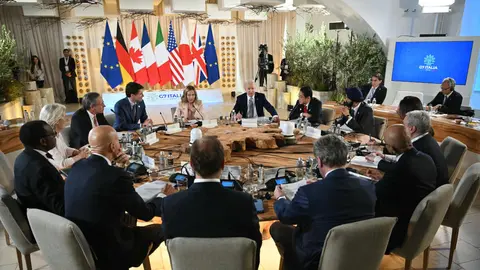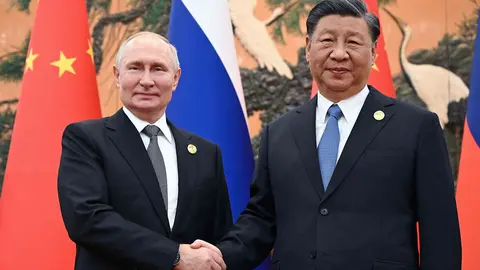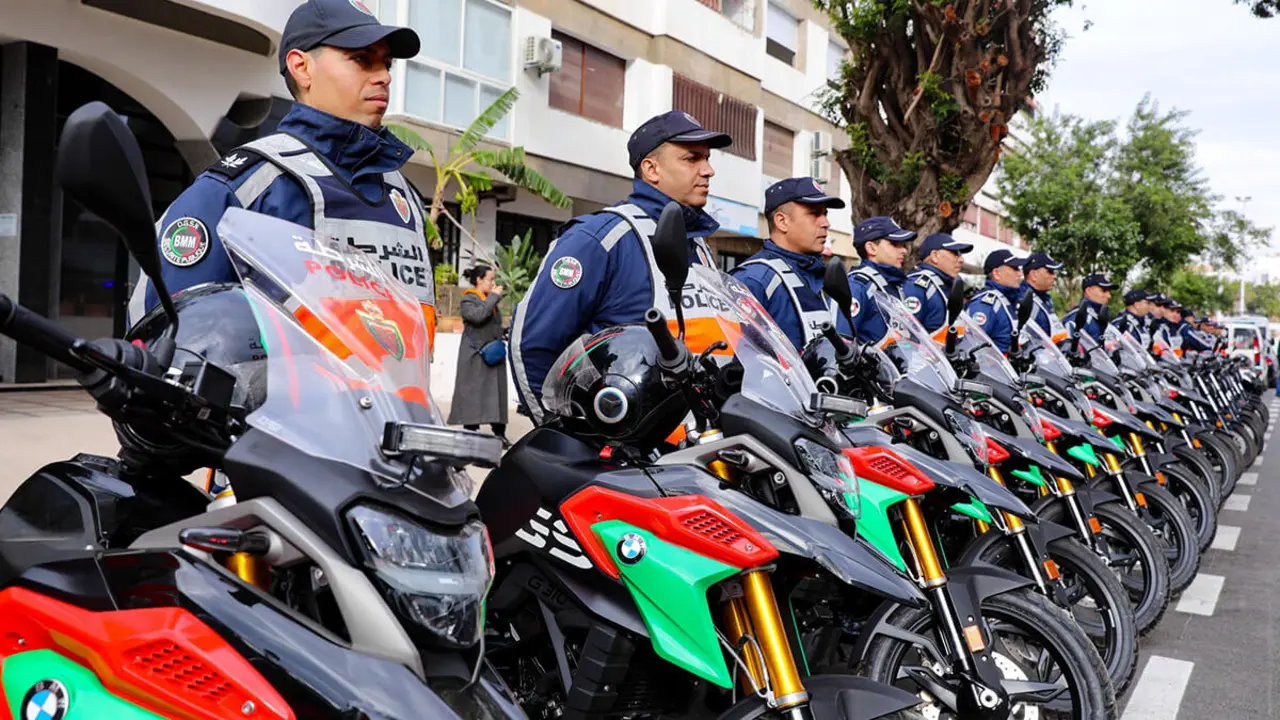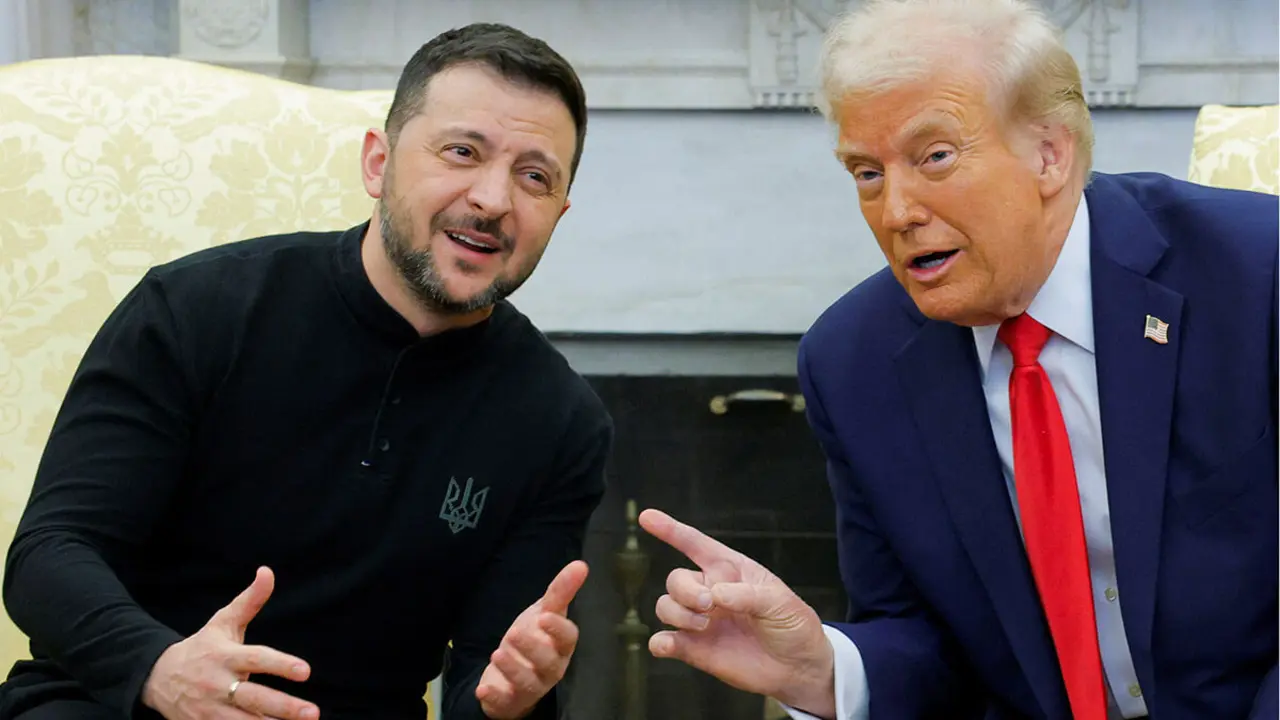Ukraine's territorial integrity a basis for any peace deal to end Russia's war
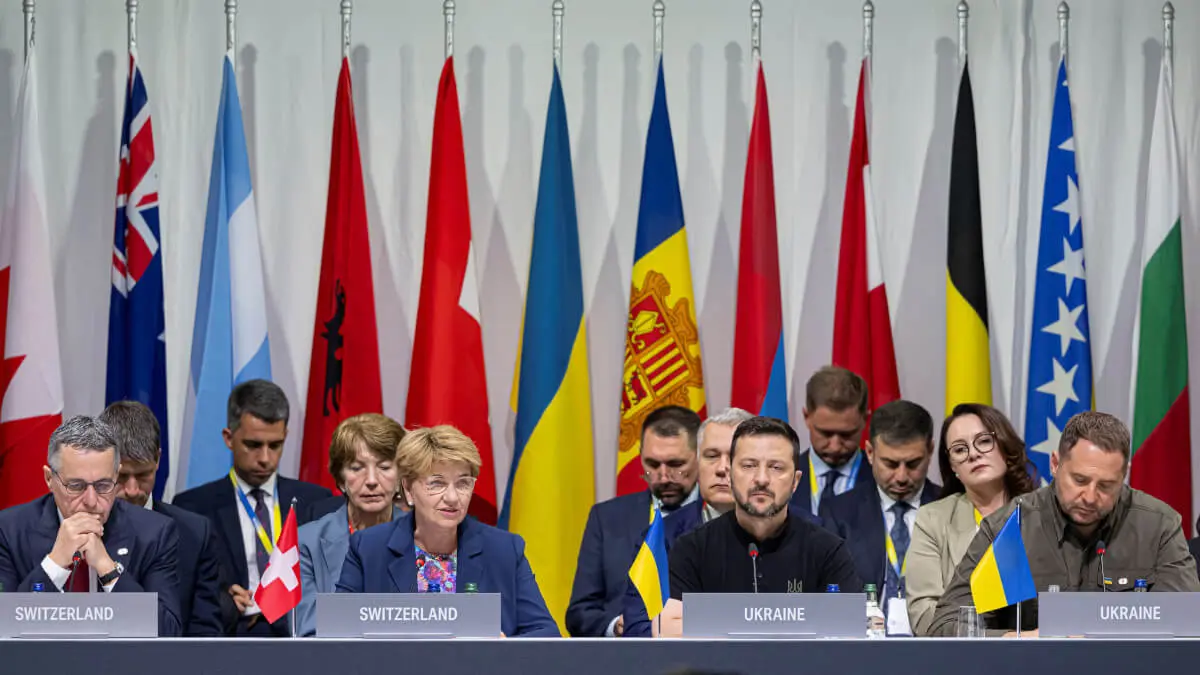
The war in Ukraine remains at the top of the global agenda. More than two years after Russia launched its invasion of the neighbouring country, the international community is still trying to find measures to put an end to a conflict that threatens to become entrenched or even expand.
Aiming to come up with solutions to end the war, some 100 delegations - mostly from Western countries - attended a conference in Switzerland billed as a first step towards peace.
The two-day summit was marked by the absence of Russia, which was not invited, as well as the requirement to respect Ukraine's "territorial integrity". 80 participating countries agreed that this should be the basis of any peace agreement to end the war with Moscow.
I thank all participants of the first Peace Summit for taking the first steps towards peace together. pic.twitter.com/9WFIhjKKF4
— Volodymyr Zelenskyy / Володимир Зеленський (@ZelenskyyUa) June 16, 2024
In the final declaration signed by the majority of attendees, it is made clear that the UN Charter and "respect for territorial integrity and sovereignty can and will serve as the basis for achieving a comprehensive, just and lasting peace in Ukraine". In contrast, Russian President Vladimir Putin wants Kiev to cede more territory and abandon its hopes of joining NATO.
For Swiss President Viola Amherd, the fact that the "vast majority" of participants agreed to sign the final document shows "what diplomacy can achieve".
For his part, Ukrainian President Volodymyr Zelenskyy welcomed the "first steps towards peace", revealing that Kiev was holding talks with some countries - which he did not name - that had offered to host a "second peace summit".
🇨🇭🇺🇦 Yesterday, 100 delegations from around the world were united by a common goal – to inspire a process towards a just and lasting peace in Ukraine. Today, the Summit on Peace in Ukraine continues in Switzerland.#UAPeaceSummit #PathToPeace pic.twitter.com/Wjx3FxLNd6
— Swiss Embassy Kyiv (@SwissUA) June 16, 2024
Nations that did not sign the final document stressing Ukraine's territorial integrity include Brazil, India, Mexico, Saudi Arabia, South Africa, Thailand and the United Arab Emirates. Some of these countries, members of the BRICS, continue to maintain strong relations with Russia despite Western sanctions and war.
In addition to stressing respect for Ukraine's territorial integrity, the final declaration of the Swiss summit refers to nuclear energy, food security and prisoner exchange, as well as the return of illegally deported Ukrainian children.
"Any use of nuclear energy and nuclear facilities must be safe, secure and environmentally sound," says the document, which calls for Ukrainian nuclear power plants and facilities, including the Zaporizhzhia nuclear power plant, to be operated safely and securely under Ukraine's full sovereign control and in line with IAEA principles and under its supervision.
We, the international community, must stand together to support Ukraine in its pursuit of peace.
— Ursula von der Leyen (@vonderleyen) June 15, 2024
This is why we're in Switzerland today.
To reaffirm the primacy of the UN Charter.
To help bring an end to a brutal and unjust war.
And restore international peace & security. pic.twitter.com/JklgFnEuyi
"Any threat or use of nuclear weapons in the context of the ongoing war against Ukraine is inadmissible," it stresses.
On food security, the text emphasises free, full and safe commercial navigation and access to seaports in the Black and Azov Seas. "Attacks on merchant vessels in ports and along the entire route, as well as on civilian ports and civilian port infrastructure, are unacceptable," it says.
The statement also clarifies that food security "must not be turned into a weapon of any kind", indicating that Ukrainian agricultural products must be supplied safely and freely to interested third countries.
In Switzerland today, I reaffirmed our nation's unwavering commitment to stand with Ukraine — not out of charity, but because it is in our strategic interest.
— Vice President Kamala Harris (@VP) June 16, 2024
It is in America's interest to defend democratic values, stand up to dictators, and stand with our allies and partners. pic.twitter.com/6FQgbtuPcG
Finally, it demands that all prisoners of war be released in a full exchange. Furthermore, all illegally deported and displaced Ukrainian children and all other illegally detained Ukrainian civilians must be returned to Ukraine.
The Ukrainian government estimates that 19,546 children have been deported or forcibly displaced, while the Russian Commissioner for Children's Rights, Maria Lvova-Belova, has previously confirmed that at least 2,000 were taken from Ukrainian orphanages.
With the #BürgenstockCommuniqué we are sending a clear signal to the people of Ukraine and to all those directly affected by the consequences of the war: A large part of the international community has the desire to bring about change. #UAPeaceSummit #PathToPeace pic.twitter.com/iNuowhyn0G
— Viola Amherd (@Violapamherd) June 16, 2024
In this regard, Qatari Prime Minister Sheikh Mohammed bin Abdulrahman Al Thani announced on Saturday that his country has organised talks with Ukrainian and Russian delegations on reuniting Ukrainian children with their families. So far, 34 children have been reunited, according to the Qatari authorities.
Despite the summit's high turnout it is unlikely that this conference will have any significant impact on ending the war. Russia did not participate, as did China, which together with Brazil has tried to present alternative solutions to end the conflict. However, the solutions presented by these nations - close to Moscow - do not envisage Ukraine's territorial integrity as the basis for peace, but rather the ceding of Ukrainian territories to Russia.

